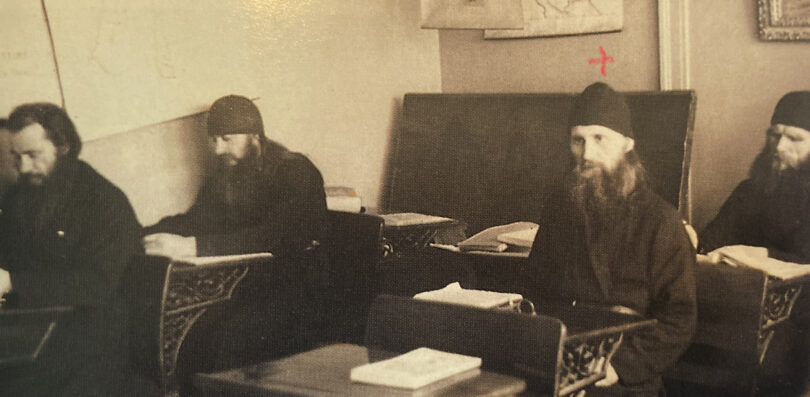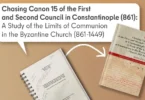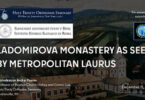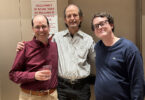Archdeacon Pimen of Holy Trinity Monastery passed away on this day in 1973.
Although the first deacon, St. Stephen was actually an archdeacon. Currently, in the Russian Church, this rank is used for the top monastic deacons and certain extraordinary non-monastic ones. Canon 16 of the Council in Trullo (691) suggests that the earliest deacons (Acts 15) were more social workers than liturgical servants. Earlier this year, the “archdeaconate” was restored in Holy Trinity Monastery: Fr. Paisii is now serving zealously in this capacity.
Fr. Pimen was his direct predecessor. Peter (his secular name) was born in 1900 in Kherson. He was a master clockmaker and member of the catacomb church. He, his brother Kirill, and his wife Anna ended up in Germany at the end of World War II. This is where they met the brethren of St. Job of Pochaev brotherhood who had fled the advancing Soviet Army. Kirill and his spouse returned to Russia, but Peter became a novice and came to Jordanville with part of the brotherhood.
Archbishop Averky wrote about him:
“In particular, while in Russia, in its Soviet guise, Fr. Pimen belonged to the Catacomb Church. There is an analogy here with his sojourn in our Church Abroad. In Soviet Russia, while belonging to the Catacomb Church, Fr. Pimen, naturally, could not help but feel his entire existence, overt and official, was just a certain semblance of life: he could feel true life only in the catacombs. This is the consciousness Fr. Pimen brought to the Russian Diaspora. Active presence in the Church, in particular participation in divine services, constituted the true and comprehensive substance of his life!” (“Pamiati Arkhidiakona Pimena, [Archdeacon Pimen: In Memoriam], Pravoslavnaia Rus’ 20 [1973]. A section of the same article, written by Fr. Kiprian [Pyzhov], has been used for the other facts in this report).










